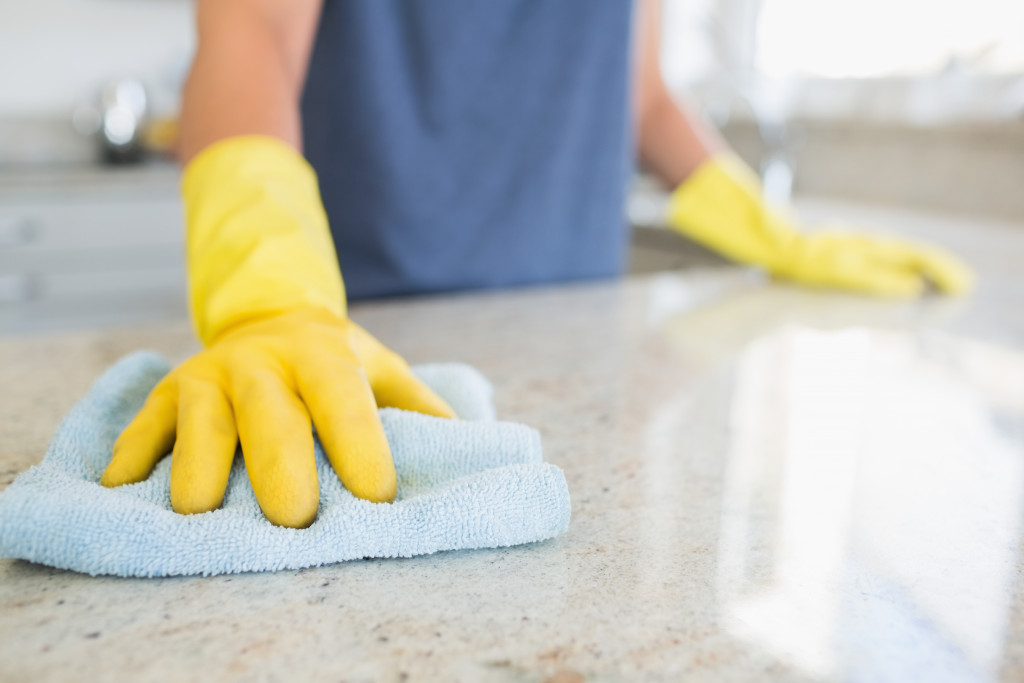Burners, ovens, fryers, refrigerators, and other kitchen equipment are necessary components of any kitchen in every household. Each one has its own specific need to be adequately cared for as it plays a crucial part in preparing and supplementing our daily needs. Maintaining them in good shape and function will not only make your home a safer environment but will also save you money, time, and trouble.
Maintaining a regular cleaning schedule
The thorough cleaning after each usage is among the simplest methods of handling your kitchen equipment. While a hectic schedule may entice you to skip it, developing the practice of cleaning after each usage will save you from trouble in the long term.
A poorly sanitized kitchen increases the chance for bacteria, grease, and molds to develop and spread on surfaces, utensils, bowls, and even on your food, leading to health and safety issues as grease accumulation is also a fire hazard that endangers your family’s lives. Therefore, maintaining a tight cleaning routine makes it entirely preventable.
Having your equipment inspected regularly
When cleaning your kitchen, take time to inspect any issues that require immediate attention and care. Look out for any blockages, wire replacements, circuit problems, appliance repairs, and other kitchen hazards. Addressing minor issues early on can save you from more financial stress later on and help you avoid delays in your daily routine and preparations.
If you’re not sure about the proper procedures, take time to consult with a professional. Although you’ll always have the option to check online, make sure to find a credible and trusted website to avoid further damage or accidents.

Keeping your knives in good condition
Learning how to sharpen properly and care for your knives will extend their life, yield better results, and make them safer to use. Keep in mind that everything is prone to change, so even the most high-end knives will eventually become dull with time. To maintain its razor-sharp edges, hone your knives after every use. You can do it with a simple steel rod or a more convenient electronic kit. Nevertheless, it should be easy to do and won’t take much of your time.
The majority of high-quality blades are composed of stainless steel or high-carbon steel, which resists corrosion better than other materials. But if the edge has been filthy for an extended period after usage, the acid, water, and other chemicals from the food can ultimately damage it, creating flaws and rust. Cleaning the blades immediately after use is the best method to avoid this.
Additionally, it’s an excellent note to switch to handwashing your knives instead of putting them in the dishwasher. Your hands are gentler than the machine; therefore, the possibility of blades getting chipped is quite slim. Doing so also enables you to see whether any dirt or food particles have been lodged between the blade and handle, allowing you to address the issue quickly.
The manuals are your kitchen bibles
Kitchen manuals are frequently neglected in today’s society. Reading the instructions is nonetheless a vital and straightforward approach to take adequate care of your kitchen equipment. Specific advice on cleaning and maintaining your appliances can be found in a handbook, particularly for kitchen gear.
In case of loss or damage, you can always have the option to look it up online, as most manufacturers publish it on their websites. It is essential to read the instructions for individuals who use the equipment to be aware of safety concerns.
Don’t forget your wooden kitchen tools
Wooden kitchen wares are a favorite among food and cook enthusiasts as they’re suitable to use for any variety of dishes. To preserve them in their optimum form, hand-wash them with warm water and light soap. Although wooden cutlery and cutting boards might theoretically be washed in the dishwasher, this is not recommended as the increased temperatures might dry them out and cause fractures in the wood.
If your wooden spoons begin to appear dry or don’t feel smooth anymore, rub them with mineral oils, walnut oils, or wax compounds. Avoid using food-based oils such as vegetable or olive oil, as these might cause your equipment to rot.
Sanitizing the kitchen is an essential component of cooking. Not only does it make food preparation and baking easier in a clean kitchen, but it also adds a layer of protection for your family’s safety and health. Spend some time learning various tips, methods, and preventative measures to ensure continuous and uninterrupted preparation of delectable and healthy meals for your family while keeping your mind at ease.

